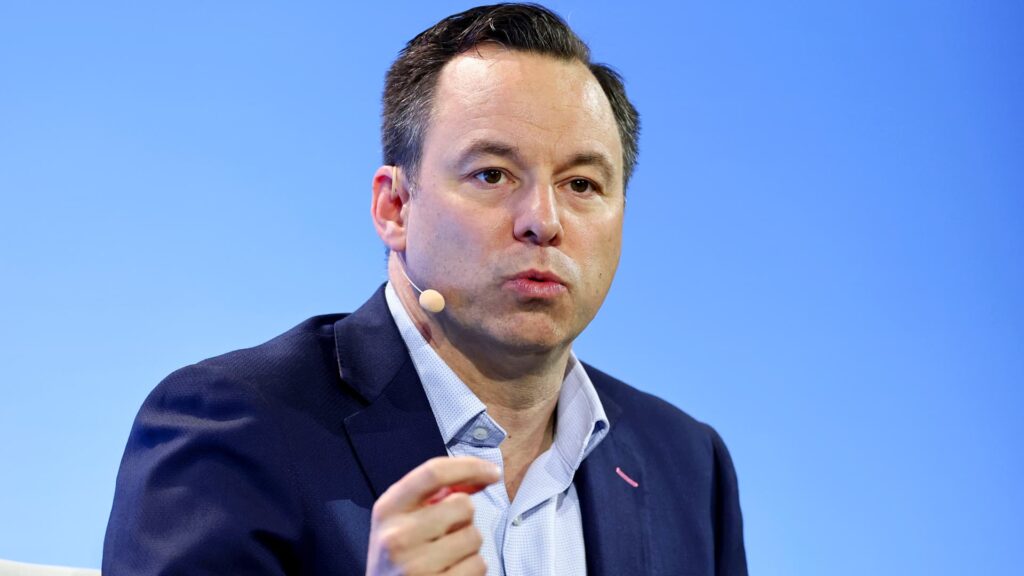Scott Strazik, chief executive officer of GE Vernova LLC, speaks during the CERAWeek by S&P Global conference in Houston, Texas, US, on Thursday, March 13, 2025.
Aaron M. Sprecher | Bloomberg | Getty Images
President Donald Trump’s executive orders on nuclear power could lead to the deployment of small modular reactors in the U.S. by late 2030, GE Vernova CEO Scott Strazik said Wednesday.
Trump on Friday ordered the Nuclear Regulatory Commission to decide on applications to construct and operate new nuclear plants within 18 months. The order also calls for the NRC to “adopt shorter deadlines tailored to particular reactor types.” The nuclear industry has long complained that the NRC’s approval process takes too long.
Trump’s order could result in approvals to start building small modular reactors in the U.S. by 2027, Strazik told the research firm Bernstein in an interview. This would create a “credible shot” of adding these reactors to the U.S. nuclear fleet in late 2030 or 2031, the CEO said.
Small modular reactors (SMRs) are plant designs that many in the industry view as the future of nuclear power. SMR developers including GE Vernova believe the reactors will one day lower the cost of building nuclear plants and speed up construction because they are smaller and assembled onsite with prefabricated parts. Large nuclear plants such as Plant Vogtle in Georgia have been plagued with multi-billion dollar cost overruns and lengthy construction delays.
“It’s just the beginning of what could very much become a very meaningful part of our business in the 2030s. We’re very encouraged by this,” Strazik said of Trump’s executive order.
Canadian debut
GE Vernova received approval earlier this month to deploy its BWRX-300 reactor in Ontario, Canada. It will be the first SMR deployed in the West, according to the company. The Tennessee Valley Authority filed an application with the NRC earlier this month to build a GE Vernova reactor at Oak Ridge, Tenn.
“We expect more customers to put in applications to construct new SMRs with our technology before the year is over,” Strazik said. Customer interest in GE Vernova’s SMR is “very high,” with users increasingly willing to pay a premium for nuclear because it doesn’t emit carbon dioxide, the CEO said.
GE Vernova’s core business is manufacturing and servicing natural gas-powered turbines, which is seeing high demand as electricity consumption grows in the U.S. The company’s stock has soared nearly 48% this year.


